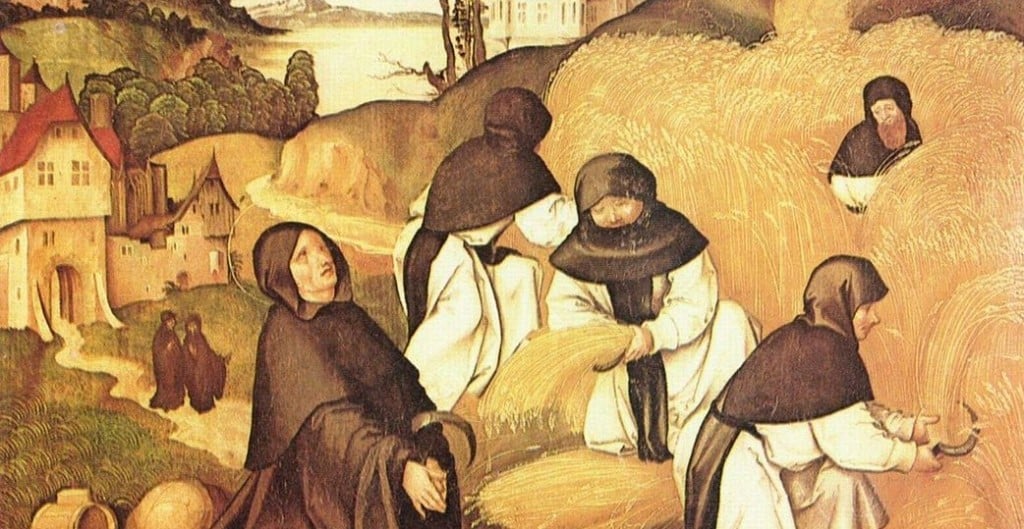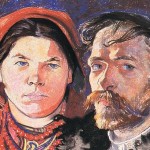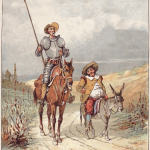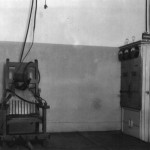
This is a guest post.
Pater Edmund Waldstein is a Cistercian monk who blogs at Sancrucensis. You will find out all you want to know about him in his testimony below.
===========
Why am I a Catholic? It would be easy to answer this question from a sociological point of view. To say that I come from a devoutly Catholic milieu hardly begins to capture it. An Aunt of mine once said that in our family being Catholic is like being Jewish — you couldn’t get out even if you wanted to. It’s not just that everyone in my family for generations has been Catholic; it’s how Catholic they have been. Both of my parents are Catholic theologians, of the sort whose loyalty to the Magisterium seems to be in the marrow of their bones. My father has been an expert on various Vatican commissions. My late American grandfather, Philip Burnham, was an editor of Commonweal Magazine, and my Austrian grandfather, Wolfgang Waldstein, is a traditionalist Catholic jurist who has been quoted by Pope Benedict XVI. My Austrian grandmother is (if possible) even more devout than her husband, and my late American grandmother was pretty much the most devoutly Catholic person I have ever met.
And it’s not just that I come from a highly Catholic milieu; it’s that I’ve never left it. Few people in our time can have had an existence as sheltered from non-Catholic influences as mine. After being homeschooled by my theologian parents, I attended Thomas Aquinas College, a enclave of old-fashioned, dogmatistic, neo-scholastic Catholicism, and no sooner had I graduated from that quasi-monastic milieu than I entered an actual Cistercian monastery, where I remain to this day.
Given the milieu in which I have spent my whole life, it is not surprising that I have never really been subject to the “cross-pressures” between secular and transcendent narratives that Charles Taylor argues in A Secular Age are so typical of my contemporaries. To me there is simply no secular world-view or religion or even Christian confession other than Catholicism that is (to use William James’s term from The Will to Believe) a “live option.” I could no more become an agnostic, or a Buddhist, or Protestant, or even an Orthodox, than I could kill my parents with my bare hands and eat their flesh.
Lector: Did you seriously just compare our separated brethren to matricidal, patricidal cannibals?
Auctor: um, let me google punctum comparationis for you…
So the sociological explanation would be easy, but from my first-person perspective it seems totally inadequate. I don’t feel constrained into Catholicism by my milieu, nor would I begin to doubt if (quod absit) my family, my alma mater, and my monastery all apostatized en masse. The reason why I could never abandon the Catholic Church is because I have found it to be truly the Body of Christ, which unites me to the one who is Truth, and True Life, and the only way to the Father. And the longer I try to live for the Church, the more convinced I become.
Lector: Don’t you think that your background, as you have described it, has given you a, like, confirmation bias here, and that maybe you should try, like, getting out a bit more, to, like, see the world through other eyes?
Auctor: Don’t say “like”; it annoys me. But to answer your question: No, I don’t. If I had lived my whole life in a milieu of classical musicians and had come to appreciate the astonishing genius of Bach, would I question whether this was the result of irrational prejudice, and that I should go live among cultural philistines for a while to recognize that really Bach is a bore, and the latest pop-star writes better music? Of course not. I would think that my background had allowed me to see realities obscure to the philistines.












